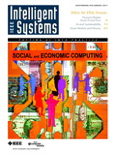
IEEE INTELLIGENT SYSTEMS
Scope & Guideline
Pioneering Research in Machine Learning and Beyond
Introduction
Aims and Scopes
- Artificial Intelligence and Machine Learning:
The journal focuses on the development and application of AI and machine learning techniques across various domains, including natural language processing, computer vision, and robotics. - Ethics and Responsible AI:
A consistent theme is the exploration of ethical considerations in AI, including trustworthiness, bias, and the societal impacts of deploying intelligent systems. - Multimodal Systems and Integration:
Research on integrating various modalities, such as text, image, and audio data, to create more robust and effective intelligent systems is a core area of focus. - Graph-Based Learning and Neural Networks:
The journal emphasizes novel approaches utilizing graph structures and neural networks to solve complex problems in areas like social networks, recommendation systems, and anomaly detection. - Human-Computer Interaction and Collaborative Systems:
Studies that enhance the interaction between humans and intelligent systems, including collaborative AI and conversational agents, are a significant aspect of the journal's scope. - Applications of Intelligent Systems:
Practical applications of intelligent systems across diverse fields such as healthcare, finance, and smart cities are consistently highlighted, showcasing the real-world impact of research.
Trending and Emerging
- Explainable AI (XAI):
A growing emphasis on explainability and transparency in AI systems is evident. Researchers are increasingly focusing on methods that allow AI decisions to be understood and trusted by users. - Neurosymbolic AI:
The integration of neural networks and symbolic reasoning is gaining momentum, as researchers explore how these approaches can complement each other to create more robust AI systems. - Adversarial Machine Learning:
Research on adversarial attacks and defenses is trending, reflecting concerns about the security and reliability of AI systems in real-world applications. - AI for Social Good:
There is a rising interest in applying AI technologies to address social challenges, including healthcare, education, and environmental issues, highlighting the potential for positive societal impact. - Federated Learning and Privacy-Preserving Techniques:
As data privacy becomes increasingly critical, federated learning and other privacy-preserving methodologies are emerging as key areas of research, allowing for collaborative learning without compromising user data.
Declining or Waning
- Traditional AI Techniques:
There is a noticeable decrease in publications focusing solely on traditional AI techniques, such as rule-based systems or simple machine learning models, as the field shifts towards more complex and hybrid approaches. - Generalized AI Concepts:
Broad discussions surrounding generalized AI concepts without specific applications are becoming less prominent, as the journal favors targeted, application-driven research. - Basic Data Mining Techniques:
The prevalence of papers centered around basic data mining methods has diminished, as more sophisticated approaches, particularly those leveraging deep learning and advanced analytics, gain traction. - Static System Designs:
Research on static or non-adaptive intelligent system designs is declining, reflecting a shift towards dynamic, adaptive systems that can learn and evolve over time. - Single-Modal Analysis:
Studies focusing exclusively on single-modal data analysis are less frequently published, as the trend moves towards multimodal approaches that combine various data types for better outcomes.
Similar Journals

Machine Intelligence Research
Connecting Global Minds in AI ResearchMachine Intelligence Research is a premier academic journal published by SPRINGERNATURE, dedicated to advancing knowledge in the rapidly evolving fields of Artificial Intelligence, Applied Mathematics, and more. With its ISSN 2731-538X and E-ISSN 2731-5398, the journal is recognized for its impact, holding a distinguished position in various Q1 categories for 2023, including Computer Vision and Pattern Recognition and Control and Systems Engineering. Operating under an Open Access model, it ensures that groundbreaking research from China and around the world remains accessible to a global audience, promoting collaboration and innovation. As a beacon for researchers, professionals, and students, Machine Intelligence Research aims to disseminate high-quality research findings, innovative methodologies, and influential theories, thereby shaping the future landscapes of science and technology.

Intelligent Data Analysis
Illuminating the Path of Intelligent Data SolutionsIntelligent Data Analysis is a highly regarded journal published by IOS Press, specializing in the fields of Artificial Intelligence, Computer Vision, and Pattern Recognition. With its ISSN 1088-467X and E-ISSN 1571-4128, the journal has been a cornerstone of scholarly communication since its inception in 1997, serving as a vital resource for researchers, professionals, and students engaged in advancing methodologies and applications in intelligent data analysis. The journal maintains its significance with impressive Scopus ranks, indicating its notable position within the academic community. Although currently not an Open Access journal, Intelligent Data Analysis offers a wealth of insights and findings, encouraging collaboration and knowledge exchange among its readership. With an impact factor reflective of its rigorous selection processes, the journal traverses a broad range of topics, contributing to ongoing discussions and innovations in its field. As the journal looks toward shaping future research until 2024 and beyond, it remains a pivotal platform for disseminating cutting-edge research and fostering academic inquiry.
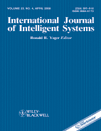
INTERNATIONAL JOURNAL OF INTELLIGENT SYSTEMS
Connecting Researchers to Cutting-Edge AI DevelopmentsInternational Journal of Intelligent Systems, published by Wiley-Hindawi, stands at the forefront of the Artificial Intelligence, Human-Computer Interaction, Software, and Theoretical Computer Science fields. With an impressive Q1 ranking across multiple categories in 2023 and a robust track record since its inception in 1986, this journal is essential for researchers, professionals, and students alike who are eager to explore cutting-edge innovations and theoretical advancements. Located in the United Kingdom, the journal operates under the esteemed Wiley-Hindawi publishing house, ensuring a broad dissemination of high-quality research articles. The journal's diverse scope encompasses advancements in intelligent systems and their practical applications, fostering an interdisciplinary dialogue that encourages collaboration across various domains. Although Open Access options are not available, subscribers benefit from the rich repository of knowledge this journal offers, making it a vital resource in the rapidly evolving landscape of intelligent technologies.
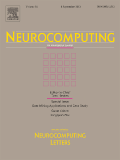
NEUROCOMPUTING
Pioneering Research in Neural and Computational FrontiersNEUROCOMPUTING is a premier academic journal published by ELSEVIER, specializing in the interdisciplinary fields of Artificial Intelligence, Cognitive Neuroscience, and Computer Science Applications. With an impressive impact factor and a Q1 ranking in its relevant categories for 2023, NEUROCOMPUTING is recognized as a leader in fostering innovative research and providing a platform for ground-breaking studies. The journal’s scope covers the convergence of neural computation and artificial intelligence, making it essential reading for researchers and professionals seeking to explore the latest advancements and applications in these dynamic fields. For those interested in the cutting-edge intersection of neuroscience and computational techniques, NEUROCOMPUTING offers a wealth of knowledge that significantly contributes to both theoretical and practical advancements. The journal is dedicated to publishing high-quality, peer-reviewed articles and is an invaluable resource for students and established scholars alike, looking to stay at the forefront of research trends.

IEEE Open Journal of the Computer Society
Advancing the Frontiers of Computer ScienceIEEE Open Journal of the Computer Society is an esteemed open-access journal dedicated to advancing the field of computer science. Published by IEEE-INST ELECTRICAL ELECTRONICS ENGINEERS INC since 2020, this journal promotes innovative research and scholarly communication in a rapidly evolving technological landscape. With a notable Q1 ranking in the Computer Science (miscellaneous) category and a high Scopus percentile of 92, it serves as a premier platform for disseminating cutting-edge findings and interdisciplinary studies. The journal is committed to facilitating unrestricted access to valuable insights, fostering collaboration among researchers, professionals, and students alike. As it continues to publish impactful articles through 2024 and beyond, the IEEE Open Journal of the Computer Society remains a vital resource for anyone interested in the latest trends and developments in computer science.

JOURNAL OF INTELLIGENT INFORMATION SYSTEMS
Exploring Innovations in Information TechnologyThe Journal of Intelligent Information Systems, published by Springer since 1992, is a premier academic journal that offers a multidisciplinary platform in the fields of Artificial Intelligence, Computer Networks and Communications, Hardware and Architecture, Information Systems, and Software. With an impressive impact reflected in its 2023 Q2 category rankings across multiple domains and a commendable standing in the Scopus Rankings—ranking #84 in Computer Networks and Communications and #101 in Artificial Intelligence—the journal is recognized for its contribution to advancing knowledge and innovation. Although it is not an open-access journal, its accessibility through institutional subscriptions ensures that a wide range of researchers, professionals, and students can engage with high-quality, peer-reviewed research that addresses the latest advancements and trends in intelligent systems. For over three decades, this journal has effectively bridged gaps between academia and industry, making it a vital resource for those aiming to push boundaries in intelligent information systems.

AI, published by MDPI, is a distinguished open access journal dedicated to advancing the field of artificial intelligence. Since its inception in 2020, the journal has swiftly established itself as a prominent platform for scholarly research, currently ranking in the Q2 category for 2023 within the artificial intelligence sector according to Scopus. With an impressive global reach from its base in Basel, Switzerland, the journal aims to foster innovation and collaboration among researchers, professionals, and students alike, providing a forum to share groundbreaking findings and applications in AI. The journal's commitment to accessibility ensures that research is available to a wide audience, enhancing knowledge dissemination and contributing significantly to the ongoing evolution of artificial intelligence technologies. To explore the latest in AI research, readers can access articles through their open access model, encouraging an inclusive academic environment.
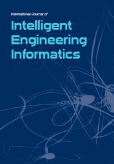
International Journal of Intelligent Engineering Informatics
Connecting Minds in Intelligent Engineering and AI.International Journal of Intelligent Engineering Informatics, published by INDERSCIENCE ENTERPRISES LTD, stands at the forefront of research in the interdisciplinary domains of computer science, artificial intelligence, and human-computer interaction. With an ISSN of 1758-8715 and E-ISSN of 1758-8723, this journal serves as a vital resource for researchers and professionals seeking to explore the latest advancements in intelligent engineering and informatics techniques crucial for the evolution of modern technologies. Although currently not an open-access publication, it provides a necessary platform for disseminating high-quality research; its impact factor continues to grow, attracting a diverse readership interested in signal processing, software development, and computer vision. Covering innovative topics from 2022 to 2024, the journal is committed to fostering scholarly dialogue that paves the way for emerging trends and applications in the field, ensuring its relevance and significance in today's rapidly advancing technological landscape.

CAAI Transactions on Intelligence Technology
Unlocking Insights in Computer Vision and NetworksCAAI Transactions on Intelligence Technology is a premier peer-reviewed journal published by WILEY, dedicated to advancing the fields of Artificial Intelligence, Computer Networks and Communications, Computer Vision and Pattern Recognition, Human-Computer Interaction, and Information Systems. Since its inception in 2017, this Open Access journal has rapidly ascended the ranks, achieving Q1 quartile status across multiple categories as of 2023, and is recognized for its rigorous standards and innovative research dissemination, evidenced by impressive Scopus rankings, including Rank #12 in Computer Vision and Pattern Recognition. Through its commitment to providing a platform for high-quality research, the journal invites contributions from scholars globally, fostering a collaborative environment that stimulates intellectual exchange and encourages advancements in intelligent technology. Addressed to researchers, professionals, and students alike, CAAI Transactions on Intelligence Technology serves as a vital resource for those aiming to stay at the forefront of technological innovation.
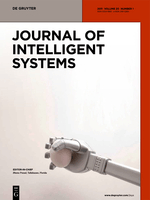
Journal of Intelligent Systems
Transforming Insights into Intelligent ApplicationsThe Journal of Intelligent Systems, published by DE GRUYTER POLAND SP Z O O, is a premier open access journal that has been at the forefront of advancements in the fields of Artificial Intelligence, Information Systems, and Software Engineering since its inception in 1991. With a commitment to disseminating high-quality research, the journal has been recognized in the 2023 category quartiles as Q3 in these critical areas, reflecting its relevance and impact in the academic community. The journal serves as a vital platform for researchers, professionals, and students interested in the evolving landscape of intelligent systems, offering insights into innovative methodologies and applications. As an open access publication since 2020, it ensures that research is readily available to a global audience, fostering collaboration and engagement within the scientific community. With a Scopus rank in the 65th to 69th percentiles across its categories, The Journal of Intelligent Systems continues to contribute significantly to the discourse on intelligent technologies and their implications for the future.